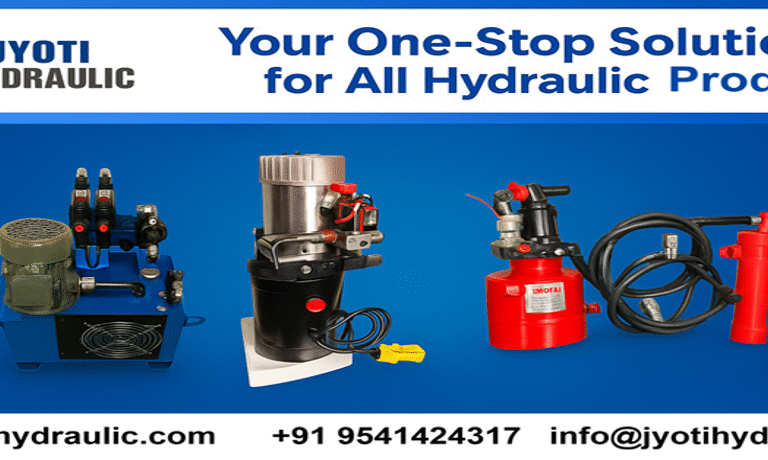Horizontal Continuous Paper Baling Machine Manual Tying
A Horizontal Continuous Paper Baling Machine Manual Tying is a high-efficiency baling system designed to compress large volumes of paper and packaging waste into dense, uniform bales while offering manual control over the tying process. This machine is ideal for recycling plants, corrugated box manufacturing units, paper mills, printing presses, warehouses, packaging industries, and material recovery facilities that generate significant quantities of paper scrap throughout the day. Its continuous feeding design allows new material to enter the compression chamber even while the previous bale is being tied manually, ensuring uninterrupted workflow and higher productivity. Manufacturers like Jyoti Hydraulic engineer these machines with precision hydraulic systems and durable components to deliver long-term reliability, high compaction ratios, and consistent performance in heavy-duty operations.

Contact With Us
Feel free to write our team anytime
Overview
The core working principle of a Horizontal Continuous Paper Baling Machine Manual Tying revolves around its powerful horizontal hydraulic compression mechanism. Paper waste—such as OCC, kraft paper, cardboard, newspaper waste, mixed paper, shredded documents, and packaging material—is fed into the hopper through conveyors, pneumatic lines, or manual loading. As the material enters the chamber, the hydraulic ram applies strong, uniform pressure to compress it into a compact rectangular bale. Once the bale reaches the preset length or density, the machine pauses briefly, allowing the operator to manually tie the bale using steel wires, PP straps, or plastic ropes. After tying, the bale is ejected automatically, and the compression cycle resumes without any delay. This semi-automatic workflow ensures high output capacity while maintaining low operational costs, making it ideal for medium and large-scale facilities seeking efficiency without the investment in auto-tying technology.
Durability and structural strength are defining characteristics of this machine. Heavy-duty steel construction, reinforced sidewalls, robust compression chambers, and industrial-grade hydraulic cylinders ensure the machine withstands continuous and rigorous use. Machines manufactured by Jyoti Hydraulic integrate high-performance pumps, precision valves, and energy-efficient motors to maintain consistent hydraulic pressure and smooth ram movement. Wear-resistant chamber plates and advanced sealing systems prevent leakage and minimize mechanical wear, ensuring long operational life. The machine’s adjustable bale-length settings, variable-pressure controls, and customizable feeding mechanisms enable industries to produce bales suited to their storage, transportation, and resale requirements.
One of the machine’s key advantages is its continuous feeding capability. Unlike vertical balers or single-cycle systems that require frequent stopping for bale removal, a horizontal continuous baler keeps material flowing at all times. This significantly increases throughput and reduces labor intensity. Operators only need to focus on tying the bale at the right time, ensuring full control over strapping strength and pattern, especially when processing varied paper textures or mixed waste materials. Dense and uniform bales produced by this machine reduce storage requirements, improve stacking stability, and enhance transportation efficiency, helping businesses reduce logistics costs and optimize warehouse space.
Safety and ease of operation are central to the machine’s design. Equipped with safety interlocks, emergency-stop controls, overload protection, and guarded moving parts, the machine ensures safe operation at every stage. The user-friendly control panel allows operators to monitor hydraulic pressure, cycle progress, bale length, and machine status in real time. Manual tying access is well-designed with sufficient space and clear visibility, enabling operators to tie bales comfortably and securely. Routine maintenance tasks—such as checking hydraulic oil levels, cleaning the chamber, lubricating moving parts, and inspecting electrical components—are simple due to the machine’s service-friendly structure, reducing downtime and increasing overall operational efficiency.
From a business standpoint, investing in a Horizontal Continuous Paper Baling Machine Manual Tying offers significant cost and operational advantages. It increases daily processing capacity, reduces waste-handling labor, and helps maintain a clean, organized workspace. Dense bales fetch higher value in the recycling market due to their uniformity and optimized weight, improving return on material. The machine’s semi-automatic nature makes it a cost-effective choice for businesses that want high-speed continuous baling without fully automated tying systems. It also contributes to sustainability goals by converting loose paper waste into compact, recyclable units that reduce landfill burden and promote eco-friendly practices.
Our Blogs
-
How to Calculate Load Capacity for Worm Gear Screw Jacks
Read MoreJyoti Hydraulic is a trusted name in the manufacturing of…
-
Cost-Effectiveness and Efficiency of Worm Gear Screw Jacks in Lifting Systems
Read MoreJyoti Hydraulic has been a trusted engineering name in the…
-
Top Baling Machine Manufacturers in India: Complete Guide for 2025
Read MoreJyoti Hydraulic, a trusted name in India’s hydraulic and industrial…



